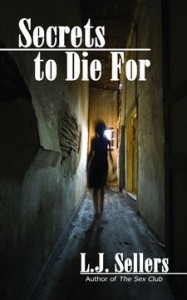I was on my way to an interview yesterday with a homicide detective, and she called to cancel because she was at a homicide scene. Of course I responded, “Can I come down there? Please!”
So I ended up at a riverside park with the whole homicide team, asking questions and feeling giddy with excitement. I know, I know. A person was dead, and that’s a tragedy. But I couldn’t help it. It made me think about the show and character Castle, and how excited he gets when he’s called out to a homicide. How silly it seemed for him. Hah! I felt like a teenager at a party with the cool kids.
Of course, they didn’t let me anywhere near the body (dang!), but still, the afternoon was very educational. I learned about a cool gadget called “total station” that’s used to create computerized maps of the area. And I learned that a big guy in a black undertaker-like suit driving a mini van comes to pick up the body. I’m still checking it out, but I think he’s a contractor for the county who simply picks up dead bodies when called out and takes them to the autopsy room at the hospital. A mini van! It’s not how I visualized it.
Mostly what I realized is that you can strive for realism when you write these scenes, but you can’t replicate reality or you’ll bore your readers to death. Everything happens very slowly—unless the killer is still on the scene. Otherwise, there’s lots of standing around. When I showed up, the detectives were all eating pizza out of box flopped open on the hood of a cruiser. It seemed so odd, I almost laughed out loud. Nobody eats pizza at the homicide scenes I write, and no one ever will.
Other things I learned about the sergeant who invited me to the scene:
- She supervises a team of eight male detectives and gets no flack about her gender.
- She remembers the name of every homicide victim she and her team have investigated.
- She’s still going to sit down with me for a formal interview next week, so I can ask about her career and write a profile about her for the paper.
 I’ve had so much great feedback on
I’ve had so much great feedback on 